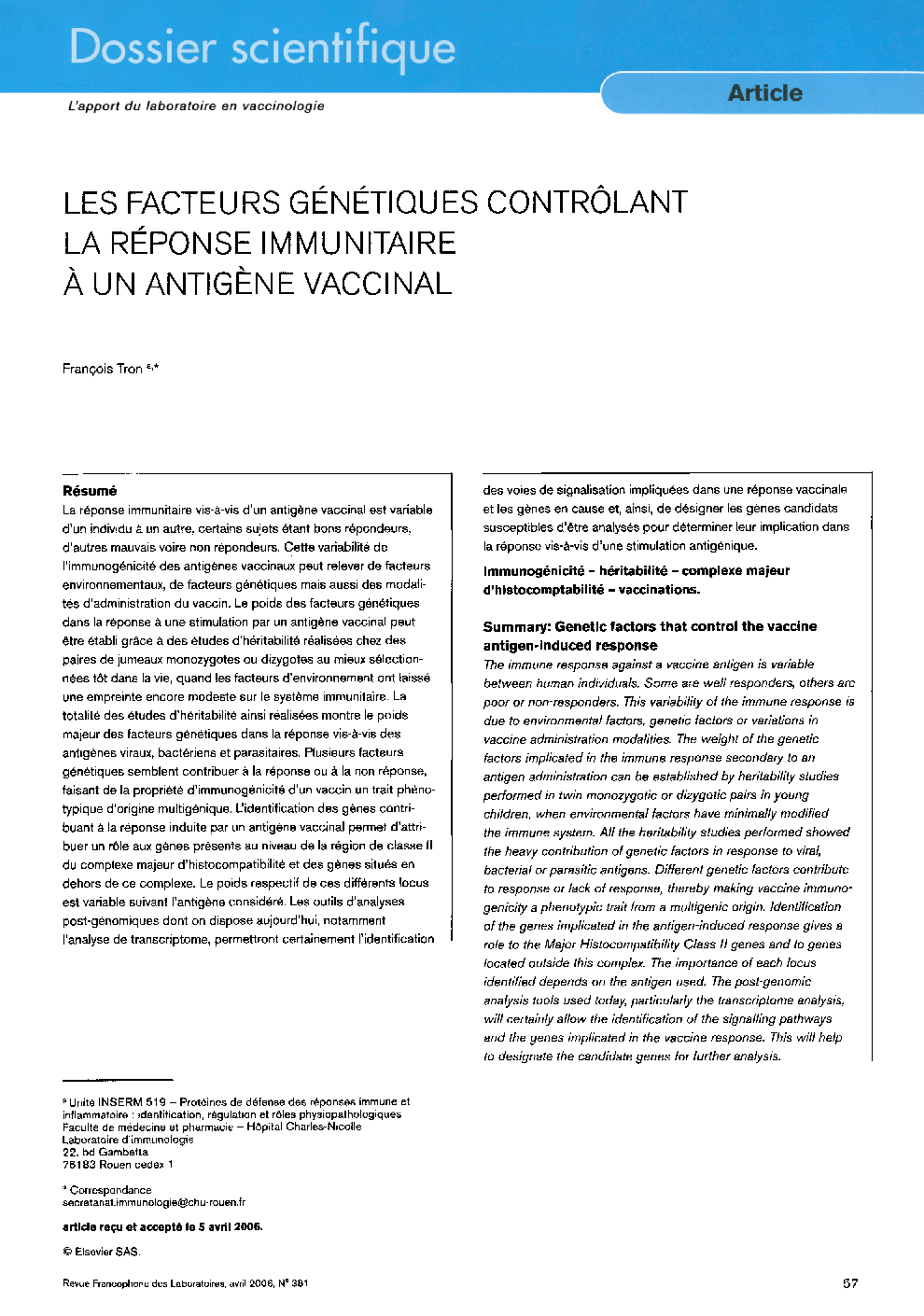| Article ID | Journal | Published Year | Pages | File Type |
|---|---|---|---|---|
| 7666348 | Revue Francophone des Laboratoires | 2006 | 4 Pages |
Abstract
The immune response against a vaccine antigen is variable between human individuals. Some are well responders, others are poor or non-responders. This variability of the immune response is due to environmental factors, genetic factors or variations in vaccine administration modalities. The weight of the genetic factors implicated in the immune response secondary to an antigen administration can be established by heritability studies performed in twin monozygotic or dizygotic pairs in young children, when environmental factors have minimally modified the immune system. All the heritability studies performed showed the heavy contribution of genetic factors in response to viral, bacterial or parasitic antigens. Different genetic factors contribute to response or lack of response, thereby making vaccine immunogenicity a phenotypic trait from a multigenic origin. Identification of the genes implicated in the antigen-induced response gives a role to the Major Histocompatibility Class II genes and to genes located outside this complex. The importance of each locus identified depends on the antigen used. The post-genomic analysis tools used today, particularly the transcriptome analysis, will certainly allow the identification of the signalling pathways and the genes implicated in the vaccine response. This will help to designate the candidate genes for further analysis.
Related Topics
Physical Sciences and Engineering
Chemistry
Analytical Chemistry
Authors
François Tron,
